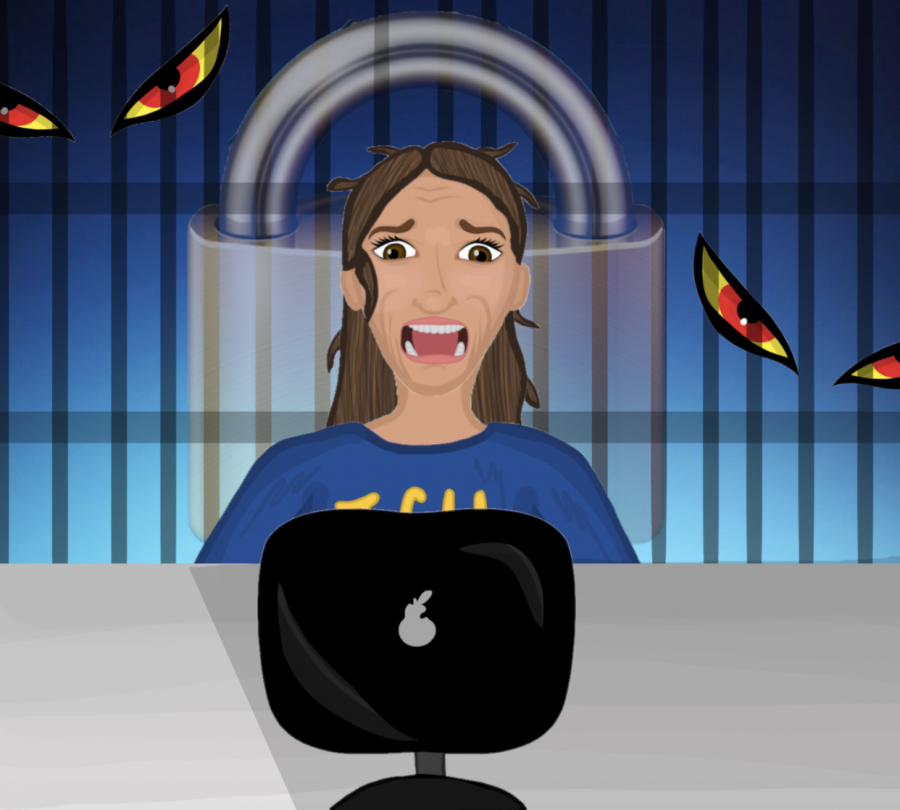How Lockdown Browser impacts students’ testing mindset
Many students feel that LockDown Browser makes tests so much more nerve wracking.
Dec 9, 2020
Matthew Meyer, a junior at John Carroll and the president-elect of Student Government, said that the anxiety he feels in exams is dependent on what mode of LockDown Browser professors choose.
“I’ve heard nightmare stories about students looking away from their screens momentarily for various innocent reasons and being automatically failed by software that tracks your eyes. That seems very unfair and unnecessary,” Meyer added.
With finals just around the corner, students and staff are preparing to use the Respondus LockDown Browser. This device increases the security of tests by preventing students from printing, copying, opening another URL or accessing other computer applications.
There are different settings in the browser that may require students to turn on their web cameras and microphones during the test. The software can even monitor the student’s eye movements in an advanced setting called the Respondus Monitor.
According to an article published by Technician, the student newspaper at North Carolina State University, students have complained that such settings are an invasion of privacy. One student studying Psychology at North Carolina State told Technician that the LockDown Browser causes more test anxiety.
Despite a completely remote semester, students at JCU are still learning to adapt and manage the pressure that comes with online learning. Announcing that professors can use LockDown Browser with advanced settings such as the Respondus Monitor has added even more stress.
Zoe Walker, a first-year student at the University said, “LockDown Browser actually stresses students out even more when they have to have their webcams on.”
The browser is a new experience for many of the professors, but quite a few have used it before because students were off-campus for exams last spring.
“I think it is a tool to ensure some fairness in students being tested on their knowledge and not what can be looked up online,” said Mary Beadle, a Communication professor at JCU.
Beadle said she has never used the browser’s advanced settings. “I hope there is some level of trust between me and the students.”
Using the LockDown Browser is entirely up to the professors. Some are not using it at all because their finals are projects or essays, which Meyer preferred over an actual exam. He suggested “to make tests that are more work/method based rather than multiple choice so that the students can’t cheat in the first place.”
The LockDown Browser has caused stressful challenges for both students and professors as the fall semester comes to an end.
The Carroll News reached out to Respondus for a statement but has not yet received a reply.















Jasmin Martinez • Aug 29, 2021 at 2:50 am
For exams like midterm or finals I would understand if we need the lockdown browser. But for weekly quizzes I think it’s extremely unfair. We should be able to look at our notes. That’s the only way we will learn.
Matthew J. Meyer • Dec 10, 2020 at 10:25 pm
Love the article, though you should note, I am the president-elect. I will be inaugurated in January! As for now, the wonderful Erin Ahern is our President.